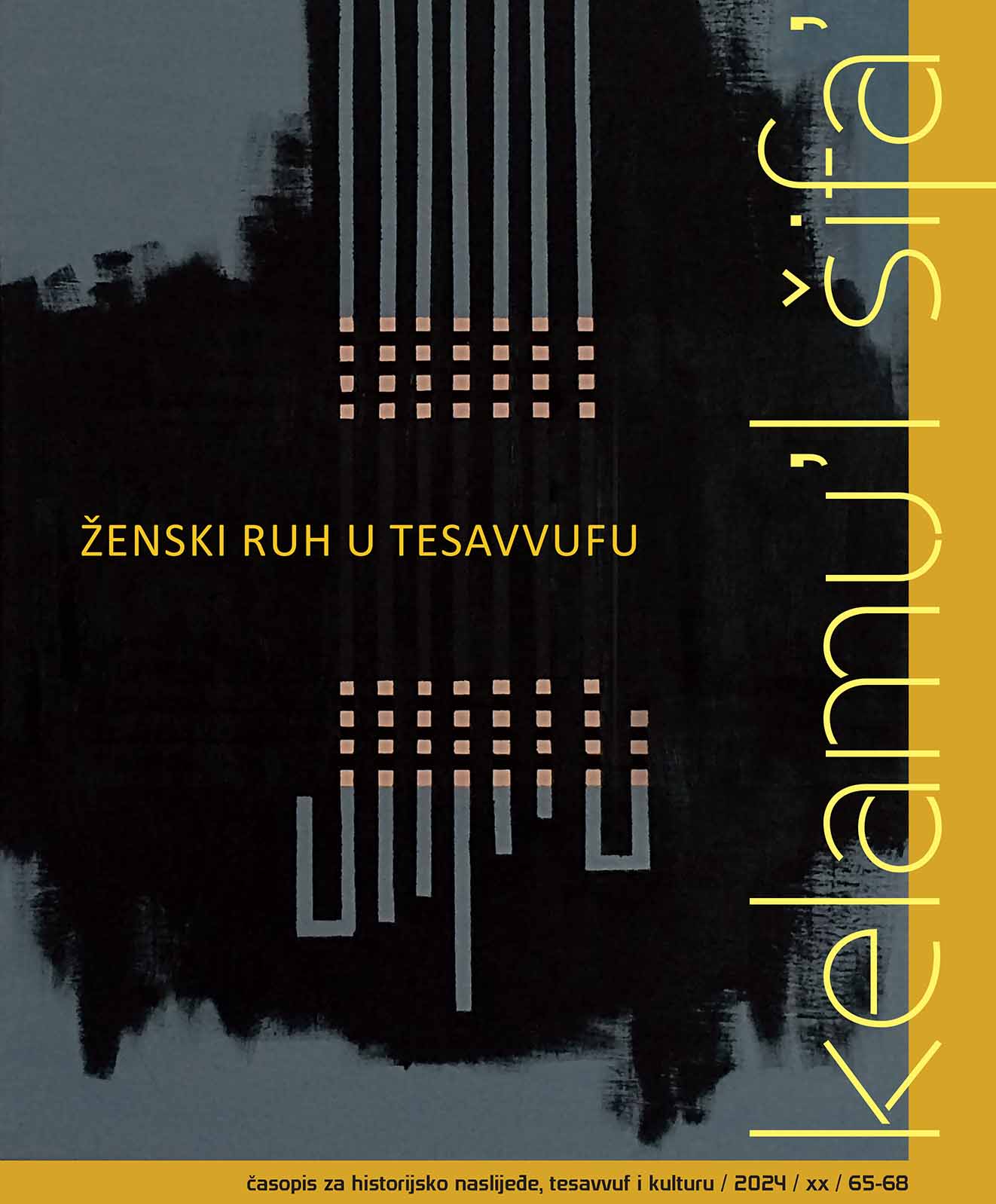Urgentan poziv za čitanje Kur’ana inspirirano prirodom
An Urgent Call for A Green Reading of the Quran
Author(s): Ozlem EzerContributor(s): Meliha Teparić (Translator)
Subject(s): Anthropology, Social Sciences, Sociology, Theology and Religion, Islam studies, Human Ecology, Environmental interactions
Published by: Fondacija Meyli
Keywords: Quran; nature; human being; antrhropocentism; Islamic eschatology;
Summary/Abstract: I drafted this article in Sarajevo, BiH, even changed the main subject of my research on women and lived Islam because of these deeply personal experiences which affected me profoundly. Sometimes ignorance is a bliss and romanticization that Gade criticized (114) might have infected me as well before my arrival in Sarajevo. I didn’t know the extent of the air and natural resources pollution that BiH suffered from before spending some winter months and completing a few hikes in the divine nature. The proud consumption of meat and tobacco products deserves a separate essay of its own, or a chapter in my memoirs later in life. My research only scratched the surface of the problems that many Muslim-majority countries are going through regardless of what the history or the politics that caused them. I witnessed them in Turkiye (the country of my origin where I am still obliged to return for familial reasons) as well as BiH and Northern Cyprus for I lived in both countries, befriended generous people who welcomed me to their homes and shared personal stories. Once I witnessed and had been exposed to insider information about the severity of the pollution and how the authorities are not making nature preservation a priority, my heart sank more than once and I decided to contribute to knowledge-making about this burning issue. Gade gave examples of Green Ramadan or Green Hajj initiatives and fatwas to rectify environmentally unfriendly patterns of consumption by encouraging the pilgrims to reduce waste, consider more environmentally friendly products and services. The purpose is to encourage reflection on their lifestyle by invoking Islamic notions that are commonly found in relation to the environment. However, as Gade emphasizes: The ‘responsible’ environmental action takes in the insidious mazes of the structures of neoliberal capital such as by buying ‘green’ products within a system of commodity consumption, making it the consumers’ individual responsibility to perpetuate environmental action through ‘green living’. ‘Greening’ religion is thus seen as global initiatives (Muslim and non-Muslim) to ‘Islamize’ environmental efforts to global sustainable initiatives (Gade 2019, 47-48). On the other hand, Gade argues that within Muslim environmentalisms (her field work was in Indonesia), environmentalism is cast as a means to achieve religious ends. In other words, for some committed Muslims, environmental practice is a religious practice. This is not to say that environmentalism would be radicalized to the point of religious zeal, but “religious lifeworlds dictate environmental engagement so naturally that they blend into the ethical and pious practices of the everyday” (Gade 2019, 35). My confusion or critical thinking mind also poses the Indonesian religious scholar K.H. Thonthawi’s reversed question “what does environmental care do for religious reality?” from “what can religion do for an environmentalist cause?” (Gade 2019, 232). This indicates that eco-theologies should challenge Islamic theology and practice, as environmental challenges force humanity to seriously address underlying knowledge making and knowledge disseminations. Is it a matter of who controls and manages the dominant cultural narratives better? A critical awareness needs to be at bay regarding the asymmetry in how far and how loud some narratives are echoed in the Global North as mentioned in the Introduction of this article. Perspectives of environmental care and ethics could then provide profound contributions to religious reality or the other way around. I hope it brings to the reader’s mind Chittick’s discussion on the inseparability of all beings; but posing questions still remains easier than the possible answers that I humbly presented here. As for the use of Islamic Eschatology in promoting a nature-friendly or conservationist’s view, I also have conflicted feelings because my own family and friends’ circle prove that most people are not comfortable with death-talks as I am. In theory, linking Islamic Eschatology directly to environmentalism today should work. But in practice, even a well-argued talk or text might cause some irritation or disturbance, mixed with a fear of death itself as well as the fear of punishment for failing to practice and grasp the interconnectedness, falling prey to pride (assumption that humans are on top of the creation pyramid) and consumption (buying more than needed, wasting food and water among other faults). In fact, these or similar concerns might be lying beneath the surface of a more romanticized or heavily scientific tone in the discussions of Muslim environmentalisms. This article introduced the works of several contemporary scholars in the Humanities who chose to wear green lenses in their commentaries on the Quran and their fieldwork about Islam, its current failings in respecting, loving and thus preserving nature. It demonstrated the need for a paradigm shift in knowledge production in this area, decolonizing the Muslim subjects’ own thinking, and also (more specifically) the contingent and even ambivalent position of the human being based on the ayats from the Quran. It warned against the consequences of constructing nature as the other while drawing attention to the lack of links between the Islamic eschatology and the debates in regard to the anthropocenic narratives in the secular environmental humanities. I advocate for a nuanced and inclusive approach to exploring environmental themes and practices within Islamic teachings, challenging stereotypes and biases that may hinder progress in addressing environmental challenges from a religious perspective. The motivation to write it arose from my own sensitivity against nature destruction which was aggravated by my firsthand witnessing various and severe forms of pollution in Sarajevo in particular. This article is dedicated to the people of BiH who have loved, lived, and saved their lands to the best of their abilities.
Journal: Kelamu’l Šifa’
- Issue Year: 1/2024
- Issue No: 65-68
- Page Range: 56-71
- Page Count: 16
- Language: Bosnian

